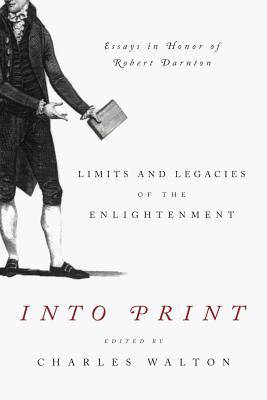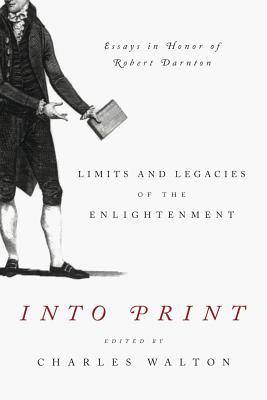
- Afhalen na 1 uur in een winkel met voorraad
- Gratis thuislevering in België vanaf € 30
- Ruim aanbod met 7 miljoen producten
- Afhalen na 1 uur in een winkel met voorraad
- Gratis thuislevering in België vanaf € 30
- Ruim aanbod met 7 miljoen producten
Into Print
Limits and Legacies of the Enlightenment; Essays in Honor of Robert Darnton
Omschrijving
The famous clash between Edmund Burke and Tom Paine over the Enlightenment's "evil" or "liberating" potential in the French Revolution finds present-day parallels in the battle between those who see the Enlightenment at the origins of modernity's many ills, such as imperialism, racism, misogyny, and totalitarianism, and those who see it as having forged an age of democracy, human rights, and freedom. The essays collected by Charles Walton in Into Print paint a more complicated picture. By focusing on print culture--the production, circulation, and reception of Enlightenment thought--they show how the Enlightenment was shaped through practice and reshaped over time.
These essays expand upon an approach to the study of the Enlightenment pioneered four decades ago: the social history of ideas. The contributors to Into Print examine how writers, printers, booksellers, regulators, police, readers, rumormongers, policy makers, diplomats, and sovereigns all struggled over that broad range of ideas and values that we now associate with the Enlightenment. They reveal the financial and fiscal stakes of the Enlightenment print industry and, in turn, how Enlightenment ideas shaped that industry during an age of expanding readership. They probe the limits of Enlightenment universalism, showing how demands for religious tolerance clashed with the demands of science and nationalism. They examine the transnational flow of Enlightenment ideas and opinions, exploring its domestic and diplomatic implications. Finally, they show how the culture of the Enlightenment figured in the outbreak and course of the French Revolution.
Aside from the editor, the contributors are David A. Bell, Roger Chartier, Tabetha Ewing, Jeffrey Freedman, Carla Hesse, Thomas M. Luckett, Sarah Maza, Renato Pasta, Thierry Rigogne, Leonard N. Rosenband, Shanti Singham, and Will Slauter.
Specificaties
Betrokkenen
- Uitgeverij:
Inhoud
- Aantal bladzijden:
- 264
- Taal:
- Engels
- Reeks:
- Reeksnummer:
- nr. 15
Eigenschappen
- Productcode (EAN):
- 9780271050720
- Verschijningsdatum:
- 15/11/2013
- Uitvoering:
- Paperback
- Formaat:
- Trade paperback (VS)
- Afmetingen:
- 152 mm x 229 mm
- Gewicht:
- 390 g

Alleen bij Standaard Boekhandel
Beoordelingen
We publiceren alleen reviews die voldoen aan de voorwaarden voor reviews. Bekijk onze voorwaarden voor reviews.










